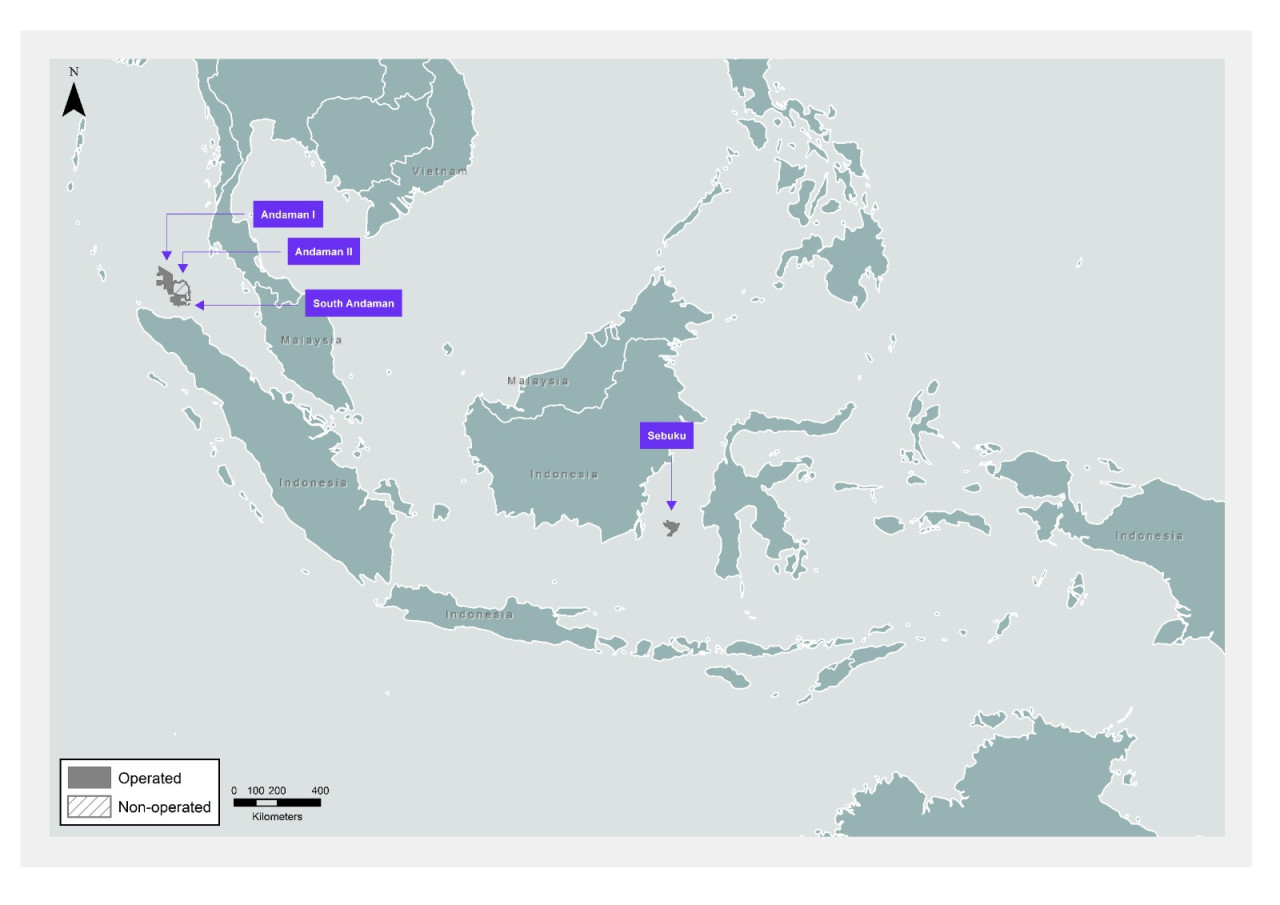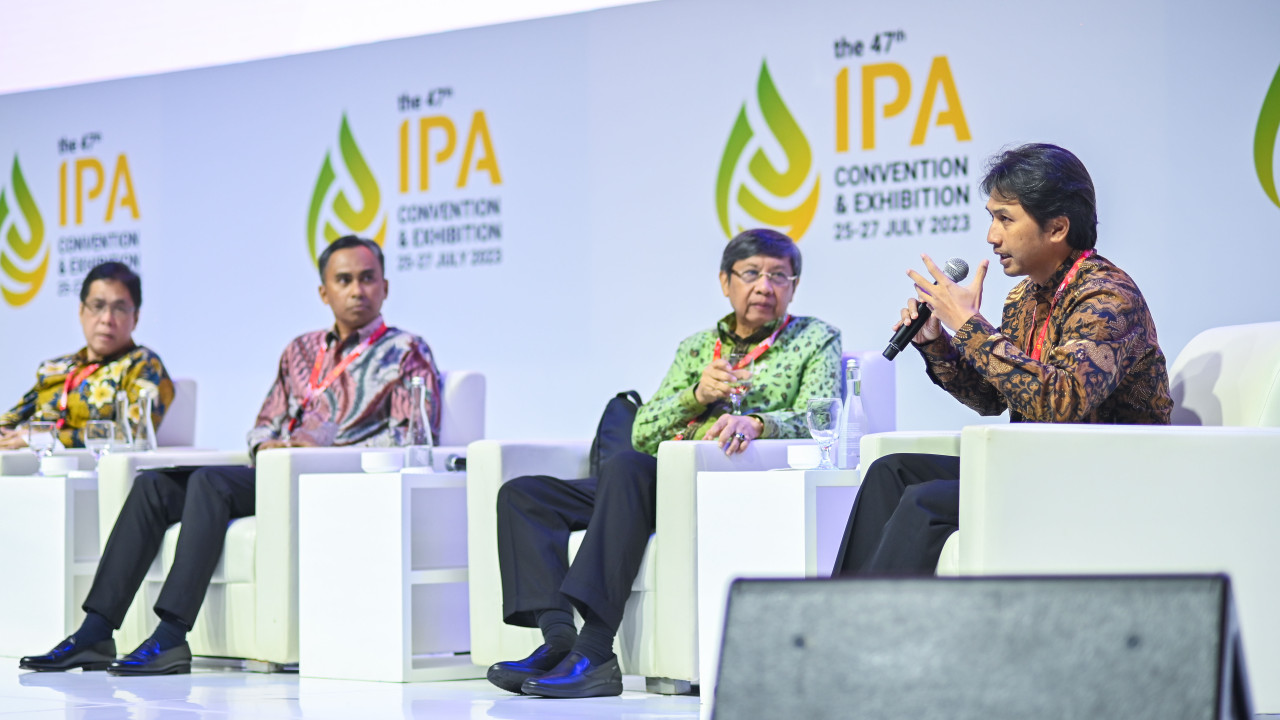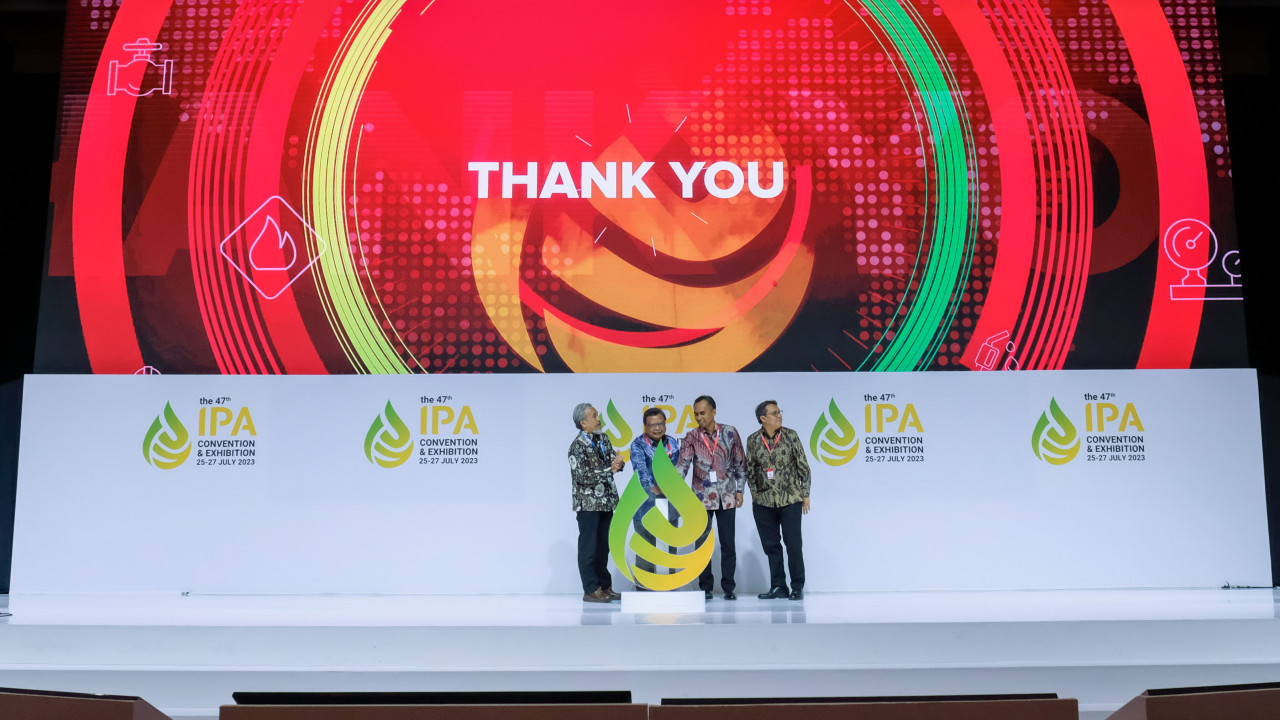IPA CONVEX PLENARY SESSIONS - Priority Reforms to Re-Attract Investment
The session was opened by highlighting that it was known that reforms are required and that the Gross Split scheme has been introduced to re-attract investment but that it remained to be seen if contractors would respond positively.
IHS then presented their findings following a comprehensive study of the gross split scheme and its impact on several development scenarios and options. They described how the industry was in turmoil globally, with a USD 1 trillion reduction in expenditure over the past 2 years and that the effect on governments was also severe. The IHS study reviewed the government interface factors, the costs and savings aspects and the IRR and tax implications, with the conclusion that in order for Indonesia to become globally competitive, changes need to be made to the proposed splits within the new scheme. The key IHS messages on gross split are:
- Is Indonesia at the right competitive level?
- Gross Split has the potential to be very successful and competitive but improvements are needed
- Cost and timing efficiency will be realized, but how material?
- Even with cost and timing efficiency, investor returns will be challenged across all opportunity types
- A route for optimization exists, which will deliver a win-win for all stakeholders
- Without these changes, investment would not be attracted to Indonesia compared to other countries.
Syamsu Alam then described how Pertamina had been reviewing the Gross Split scheme for 5 months and that there were still concerns about the splits. Pertamina enjoy the privilege of having variable splits and progressive splits, but he noted that after approximately 5 years, the additional split from the progressive split would be gone and reduce the attractiveness of the scheme. He added that 8 new Blocks are being assigned to Pertamina and that these could not be managed by Pertamina alone. These Blocks would be challenging and he has asked government for a one-month extension to evaluate the gross split scheme and its applicability to these newly assigned blocks.
Ronald Gunawan, on behalf of the IPA, noted that 70% of production in Indonesia is from mature fields at present and that future exploration prospects lie in frontier areas. He stressed that economic return alone is not enough and that there is a need to incentivize the exploration phase and mature fields for Indonesia to become globally competitive. He remarked that the Gross Split scheme could be the solution, but that coordination is required. The government need to consider how to become investor-friendly to deal with the upcoming regulations and revisions to regulations concerning GR79, the Oil and Gas law, ASR and Gas governance. These 4 areas will test the investment climate in Indonesia.
Wiratmaja Puja, remarked in his speech that Indonesia is a big country with good prospects, a growing, large population and economic growth. The Director General noted that efforts have been made to improve efficiencies in the Ministry with the reduction in permits and a reduction in the timescales required to obtain approvals. The government is open for discussion on the new scheme but discussions must be focused on quantitative issues, not on qualitative issues. Regarding exploration data, the Ministry have benchmarked against Mexico and will be introducing an “open data” policy to encourage investment. In addition, a revised EOR policy is in progress to increase production, as well as policy reform to boost deep water exploration and improving fiscal terms to encourage exploration and exploitation.
Arcandra Tahar, Vice Minister ESDM, arrived towards the end of the session and opened his speech by commenting that there had been a lot of discussions, meetings, and debates over the last 6 months and that today, he would be talking about the past, present and future. He emphasized that he will continue to listen to the industry on the new regulations and is open to further discussions and hearing new ideas on how to increase investment into the sector and discuss the pros and cons. He then outlined the following key points on some current and future issues:
GR79 – this is still with the Ministry of Finance and other institutions to resolve a wording issue and he expects a resolution in the next few weeks. He added that the IPA had expected that the latest revision will improve the investment attractiveness, that companies would invest more, that exploration would increase and that it would assist with tax issues. He expected the IPA to support the revised regulation.
PI 10% - contractors have been challenging this and saying that it would cost more – this is true, however with the expected reduction in permitting etc. from regional government following its implementation, these efficiency improvements could be quantified in terms of cost reductions. Note: The IPA Position is that the benefits of this are still uncertain.
Gross Split – He emphasized that the IPA had been involved from the beginning in crafting the scheme. He acknowledged that it has weaknesses and loopholes, however is open to discussion on how best to optimize the scheme for everyone’s benefit. He added that the industry must also recognize that there is a further 5% discretionary split available from the Minister but asked operators to review their fields, examine data and present the data and results to him in order to discuss further. “If it’s not good, we will change it” was the overriding message, but this must be based on data and not on opinion.
Improvement of Recovery mechanism for additional production investment – he aims to improve the recovery system for additional production investment with a revision of MR 26/2017 to cover the issue of production declines at end of contract time where there are no assurances of investment return. The Ministry is still flexible.
What’s Next? The Vice Minister then outlined four key areas that he will be targeting in the immediate future:
Asset management for Contract Termination during Exploration Phase – he recognizes that if a Block under exploration becomes unviable, then under current terms, the equipment belongs to government. He is now proposing that equipment could be used for other fields or Blocks or the equipment will be given to the PSC who would then pay the tax and the equipment would be owned by the PSC. The equipment could then be used on any future activity. There will be a revision to GR35 / 2004 and he will invite the IPA to review the regulation before it is issued.
Performance based Commitment (Reform of Firm Commitment) – PSC’s will have the right to discontinue drilling where there is a high possibility of unrecovered resources, then transfer the rest of the firm commitment to other exploration area if available.
Strategy – Greenfield Sites – He expects more exploration of greenfield locations in future and that he wants government and contractors to work together to help increase exploration. The Ministry are considering providing incentives for marginal fields and he will consider what incentives will be provided. He, and SKK Migas, are open to discussion on the development of marginal fields on a field by field basis.
Strategy – Brownfield Sites – Any new technology is welcome if it increases production. Industry need to share success stories and share knowledge to increase production. He noted that if there are incentives needed to utilize new technology, then industry can come and talk to him. He also encouraged EOR opportunities as he believes there are 4 billion barrels of potential.



